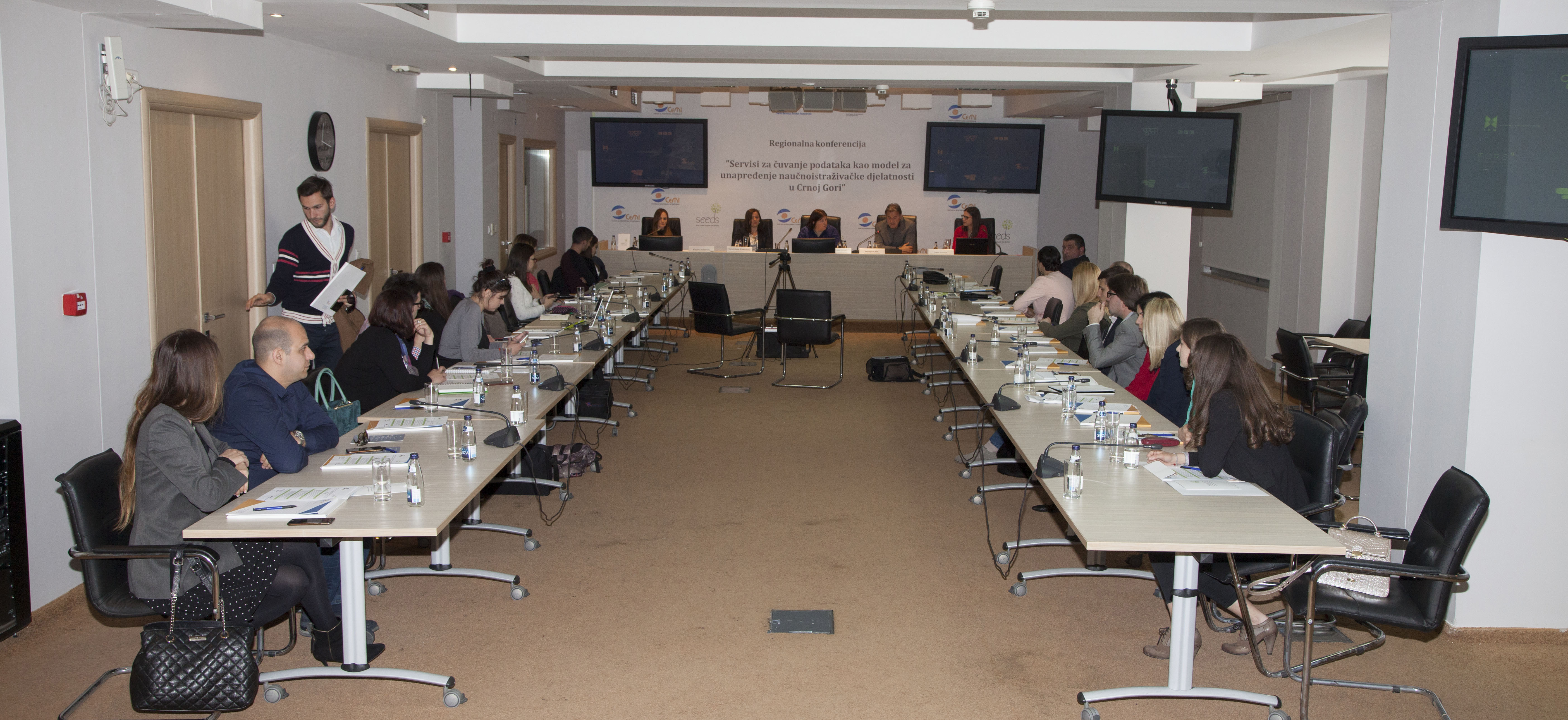In Montenegro, it is necessary to establish a permanent infrastructure for data storage, which would promote scientific research and facilitate access to research results, it was evaluated at a regional conference of the Centre for Monitoring and Research (CeMI).
This NGO organized a conference “Services for data storage as a model for improving research activities in Montenegro”, within the regional project “South Eastern European Data Service – SEEDS” which was supported by the Swiss Agency for Development and Cooperation and the Swiss National Science Foundation.
Author of the study and research “Researchers in Montenegro and their view of data availability,” Ivana Vujovic, said that the survey was conducted from September to December 2015.
The study, she said, showed that research was mostly financed through international projects.
“The Ministry of Science, through its funds financed 16 percent of the researches, while nine percent of respondents funded their research themselves,” said Vujovic in PR Center.
She explained that the respondents consider it necessary to introduce clear standards in scientific research in Montenegro.
“Key recommendations of the research are that it is necessary to create a national data archive of social science researches, which follows the highest international standards, to improve the knowledge of researchers on methods of collecting, processing, storing and archiving data, to raise awareness of researchers on the importance of sharing well-preserved data and to improve financing of research in the social sciences”, said Vujovic.
The project coordinator and executive director of CeMI, Nikoleta Tomovic, explained that the term data includes raw data that were obtained through research in the social sciences and which are further used for research purposes.
“In recent decades the governments of the Member States of the European Union and the European Commission itself have put great efforts and provided resources to build the infrastructure for the establishment of a service for storing data, in order to preserve the obtained data and make them available to other researchers”, said Tomovic.
She believes that the key decision makers in the field of scientific research data storage are institutions that are policy makers in the field of science in Montenegro, institutions that are significant for the financing of science and researchers.
“There is a lack of trust between the researchers themselves in terms of questionable academic integrity, and researchers are justifiably concerned about the possibility of misuse of their data, which limits the willingness to share data,” said Tomovic.
General of the Directorate for Scientific Research Activities of the Ministry of Science, Darko Petrusic, said that the role of that department is to create a legal framework and to open access to scientific research results which is defined as one of the goals.
“We formed a working group that will define the model that best suits Montenegro. Also, we have developed an information system called scientific network, whose third phase is in progress. This system is proved to be very good and it deals with the issue of keeping information about the structure of scientific research, “said Petrusic.
General Director of Higher Education at the Ministry of Education, Mubera Kurpejović, has said that the creation of scientific data storage service is very important for improving the education system.
“The special character of this service can be seen in the social sciences. Why colleagues from the Faculty of Political Sciences wouldn’t use research and information obtained by colleagues from the Faculty of Economics? This would save time and money and avoid an overlapping of data”, explained Kurpejović.
President of the Center for Young Scholars at the Montenegrin Academy of Sciences and Arts Maja Drakić Grgur, stressed the importance of protecting intellectual property rights and the institutionalization of the process, because, as she explained, researchers would be willing to share the results of their research then.
“If the relation between those who ordered the project and those who collect data is determined by the Contract on the Intellectual Property, then the issue of the institutionalization of the relation with the depositor of storing primary data appears. These are all things that can effectively regulate and improve the process and allow researchers to access data”, said Drakić Grgur.
President of the Governing Board of CeMI, Zlatko Vujovic said that Montenegro is a small research community, stating that the results are modest, and the resources that are available to researchers are “basically non-existent.”
“The fact that the survey was conducted, means nothing since data is not available and specially systematized. This is especially important for young researchers, who are faced with rigid rules, and institutions that impose these requirements do not provide anything in return, because there is no access to the databases of quality data”, explained Vujovic.
He pointed out that in Montenegro there is no legal archiving of data for research purposes and that, as noted, it is easier to get to the results of research in another country than in Montenegro.
“Aim of the project is to establish a permanent infrastructure for storing data obtained through research in the social sciences in the countries where the project is implemented, the so-called raw data, and to enable secondary analysis of the data obtained by other researchers”, explained Vujovic.
He said that Montenegro is not present in the comparisons and analysis with other countries, so this service for data storage, he explained, will allow other researchers to learn better about Montenegro.
